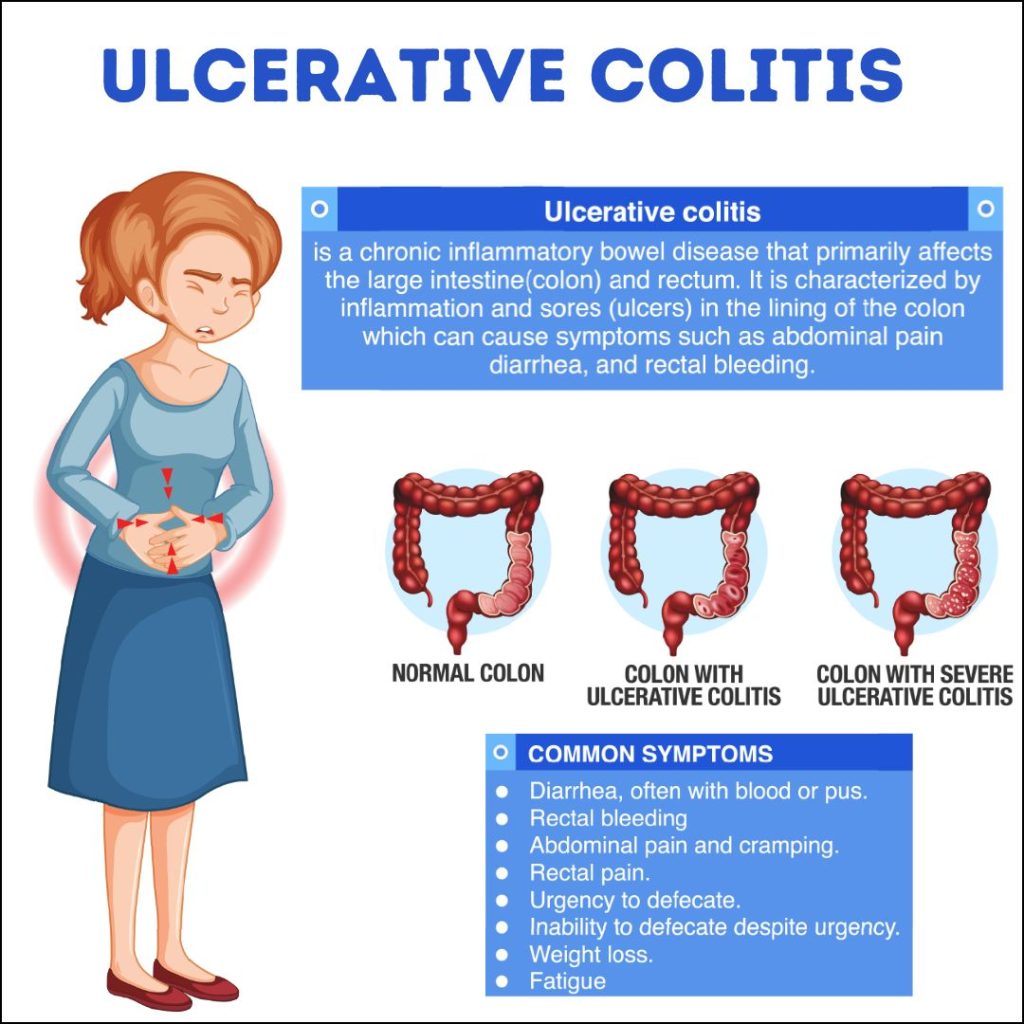Ulcerative colitis can occur at any age

It is often diagnose in people age 18 to 35 years old. Men and women.
If you have ulcerative colitis you may also have another immune condition such as asthma, psoriasis or type 1 diabetes. So if you have an immune condition and symptoms of ulcerative colitis, see your GP.
Ulcerative colitis is often diagnose using a mixture of methods. It is best to talk to your doctor so they can check if your symptoms are caused by คาสิโนออนไลน์ UFABET ฝากถอนรวดเร็ว เริ่มต้นเล่นง่าย another condition instead. Your doctor will ask you about your symptoms and medical history. They may also want to:
- Take a blood sample to check for anaemia and check the levels of your infection fighting (immune) cells. The test may also include checking for test C-reactive proteins (CRP) to check for the presence of inflammation or infection in your body.
- Get a stool (poo) sample from you to check for inflammation and signs of an infection, eg, gastroenteritis.
- Arrange a test on your lower bowel called a sigmoidoscopy. A narrow tube containing a camera and a light is pass through your anus into the lower bowel. This allows a specialist to look at the lining of your colon. Sometimes a small piece of tissue is removed (biopsy) so it can be examined more closely in a laboratory.
- Arrange a colonoscopy. This allows a greater length of your colon to be examined to rule out Crohn’s disease (which has similar symptoms to ulcerative colitis).
If you have been diagnosed with ulcerative colitis. Your doctor will often want to continue many of the tests above so they can monitor your condition over time. As people with ulcerative colitis have a higher chance of getting cancer of the colon, especially if the disease begins before the age of 15 or continues for longer than 10 years, regular colonoscopies can help detect this cancer.
The main aim of treatment for ulcerative colitis is to stop inflammation in the colon, to prevent flare-ups and to keep you in remission (without symptoms). The kind of treatment depends on the type of symptoms and how bad they are.
Medication
Medicines are used to control the inflammation in your colon and to reduce your body’s immune response. Often medicines prescribe in a ‘stepped’ approach, depending on your response and symptoms. Read more about the medications use for ulcerative colitis.
Nutrition and diet
Although diet does not cause ulcerative colitis, there may be times when changes in your eating habits can help control your symptoms and prevent flare-ups. Many people with ulcerative colitis find it helpful to keep a diary of daily food and drink intake to see which drinks or foods link to worsening symptoms. Each person with ulcerative colitis is different, so try to find out what works for you.
Other useful tips are:
- Try to maintain a healthy varied overall diet.
- Increase your intake of natural sources of omega-3 fatty acids, eg, salmon or flax/chia seeds.
- Reduce your consumption of red and processed meat. Remember to supplement your diet with iron or protein rich foods so you don’t develop anaemia.
- Speak to a dietitian for advice if you are struggling to maintain a well-balanced diet or if you have a lot of inflammation that means you are not absorbing as many nutrients.
- Try a gluten free diet for a while.
- Drink plenty of water – especially when you have flare-ups. The water you lose through diarrhoea can make you dehydrated. Try to avoid caffeine and alcohol, as these will make your diarrhoea worse, and fizzy drinks, which can cause flatulence (gas).
- Take food supplements – ask your doctor if you need food supplements, as you might not be getting enough vitamins and minerals in your diet.
Surgery
If you have severe ulcerative colitis that does not respond to drug treatment or affects your quality of life, having surgery to remove your colon or part of your bowel is an option.
Other treatments
- Stopping smoking: All people with ulcerative colitis are recommend to stop smoking. People who smoke are more likely to need surgery than non-smokers.
- Keep up to date with vaccinations: People with ulcerative colitis often immunocompromised or are taking immune suppressing medicines.
- Exercise: Weight bearing exercise can help reduce tiredness and helps improve your bone health especially if you are taking steroids such as prednisone.
- Herbal supplements:
- Turmeric: Some people find that the anti-inflammatory properties of turmeric can help. However, as with all herbal products, check with your pharmacist to see if it interacts with any medicines you are taking and what dose to take.
- Cannabis based products: There is insufficient evidence to support the use of cannabis based products in ulcerative colitis.
- Helminth therapy: There are several studies which have looked into the use of helminth therapy for achieving remission in ulcerative colitis. There are no firm conclusions on. This therapy and the therapy is not approve.
- Probiotics: There is some evidence that taking probiotics (live bacteria and yeast that are good for your gut) as well as medicines may be useful. It has not prove.